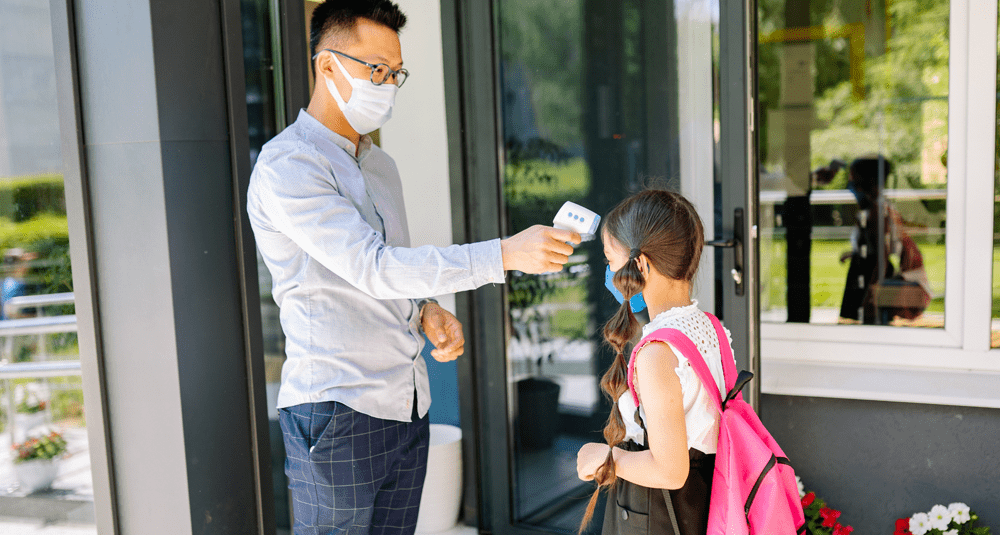Back-to-School for the Second Time in a Pandemic

After a full year of disrupted learning, most teachers, students and parents are ready to see kids return to the classroom this fall. But with children under 12 still not eligible for vaccination and concerns over the Delta variant growing, many families are anxious about what the school year will look like and how it will impact our kids. As the pandemic stretches on, here are some positive strategies to help you prepare your kids and ease the transition back-to-school:
Set a routine
Following months of remote learning and a long summer vacation, getting into a schedule will be difficult for many kids. Start now with consistent wake and bedtimes, limit endless snacking and cut back screen time. Consider posting a family calendar with the school start date highlighted to help your child visualize how many days are left until school begins.
Give Space
If your child is feeling anxious about being away from you or other family members, try to create some separation as you work towards full days apart. Especially for younger children, encourage independent play, leave them with a family member or friend while you run errands and organize a playdate with classmates that follows COVID-19 precautions.
Get Excited
To build some enthusiasm around going back to school, bring your child with you to pick up supplies, a new backpack, fun snacks or their first day outfit. Make a card for their new teacher, walk by the school a few times and arrange to meet peers safely on the school playground to help remove some of the uncertainty around this transition.
Practice Safety Skills
Masks are still mandatory for students in Grade one to 12 and are strongly recommended for children in kindergarten. Though we’re all more comfortable with masks these days, many kids haven’t been using them often or for long periods of time since school buildings closed in the spring. Leading up to the first day, have your child wear a mask through a movie, for a long car ride or during a playdate. Also review proper handwashing and playing at a safe distance and discourage touching the face or mouth.
Talk About What to Expect
It’s been a while since kids have been in the classroom with all the COVID-19 safety measures in place. To limit disappointment, remind your child that their favourite extracurricular activity may not be running again this year, cohorts and other policies can make it difficult to see some friends and shared spaces like libraries, cafeterias and gyms will still be used differently. It’s also helpful to prepare your kids for another potential school closure if the COVID-19 situation gets worse in the coming months.
Model Healthy Coping
Kids look to the adults in their life for how to respond to stressful events, so it’s important to have a calm and positive attitude about going back to school. It’s fine to say that you’re worried or that you don’t have all the answers, but show them how you deal with stress in a positive way. Maybe that’s going for a walk together, blowing bubbles with smaller children, doing a yoga class or staying focused on what everyone is doing to stay safe.
Validate and Check-in
At the start of another pandemic school year, our kids may be overwhelmed in social situations, struggle academically after being left behind in virtual school, or just feel a little lost. It can be difficult for kids to manage big emotions or identify problems, so don’t expect them to reach out. Ask your child what they are looking forward to and what they are worried about and keep having these conversations throughout the year. If you notice any concerning symptoms like stomach aches, headaches, unusual outbursts, sleeping problems, changes in eating habits or obsessive behaviours, your child may benefit from some additional support.
Most of us thought we would be in a better situation with the pandemic by the start of this school year, but the good news is that after a year of progress, many teachers, parents and students are vaccinated and we know more about how to stay safe. This hasn’t been easy, but getting through difficult situations and coping with change will hopefully make our children more confident, resilient and ready to face challenges along the way.
You may also like:
